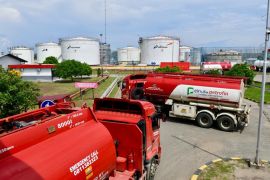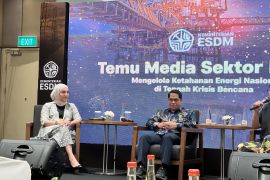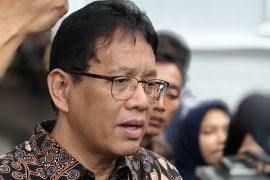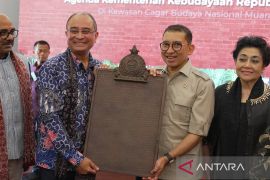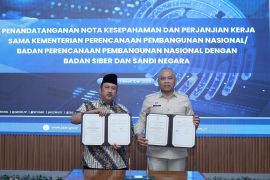"The use of research results is important for industrial purposes, as it will be highly influential on the sustainability of the business. Thank God, the research results from BPPT and the Airlangga University have been utilized by the industry sector," he stated during the inauguration of the enzyme production unit located in the area of the Bio Center of PT Petrosida Gresik, East Java, on Friday.
The use of environment-friendly enzymes derived from biodiversity undeniably holds significance, as it will replace the use of chemicals. Moreover, he said the use of enzymes produced by the unit can reduce the number of enzyme imports from various industries.
The production of the enzymes will produce biodegradable industrial waste.
"This is very important, as the current enzyme production unit, so far, has produced chemicals that are difficult to decompose," he remarked.
Head of BPPT Unggul Priyanto said his party, represented by the Bioindustry Technology Center, has developed an enzyme production technology using local biological resources.
The technology has been developed through research conducted at a laboratory level and later upgraded to a pilot production scale, with a fermentor capacity of 150 to 1,500 liters.
Some types of the enzymes developed include proteases and xylanases that have been applied in the leather tanning and pulp and paper industries. Currently, the BPPT and PT Petrosida Gresik have developed the use of the enzymes on a commercial scale.
For building the enzyme production unit, BPPT has offered technological support through technical consultation, process design, and technology transfer.
Technical consultations were conducted to assist PT Petrosida Gresik in preparing the documentation for engineering design, while the technology transfer was carried out by providing training covering upstream and downstream enzyme production technologies.
Upstream production technologies included starter preparation, microbiological work, and fermentation process, while the downstream process comprised separation, concentration, purification, drying, and packaging.
He said nearly 99 percent of the enzymes, or biocatalysts, needs for the industry sector are still imported from abroad, such as China, India, Japan, and parts of Europe. The demand for enzymes tends to increase every year, and the global market demand for enzymes was estimated to increase by about seven percent per year during the period between 2015 and 2020.
Enzyme consumption for the industry sector in Indonesia was estimated to reach 2,500 tons, with an import value of around Rp200 billion in 2017, and an average annual growth rate of five to seven percent. It is a considerable value to encourage the nations self-reliance in enzyme production.(*)
Editor: Heru Purwanto
Copyright © ANTARA 2017

